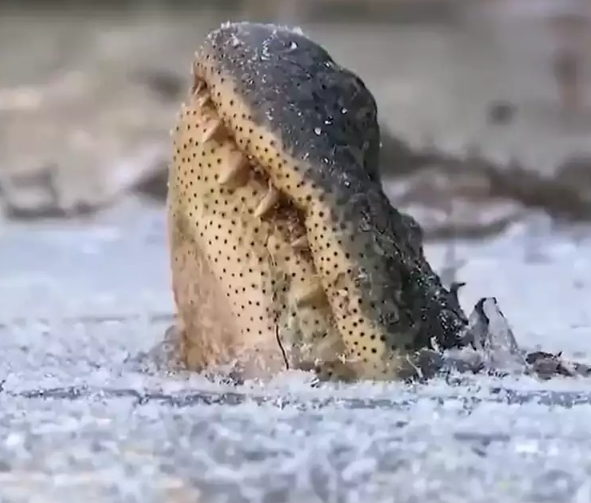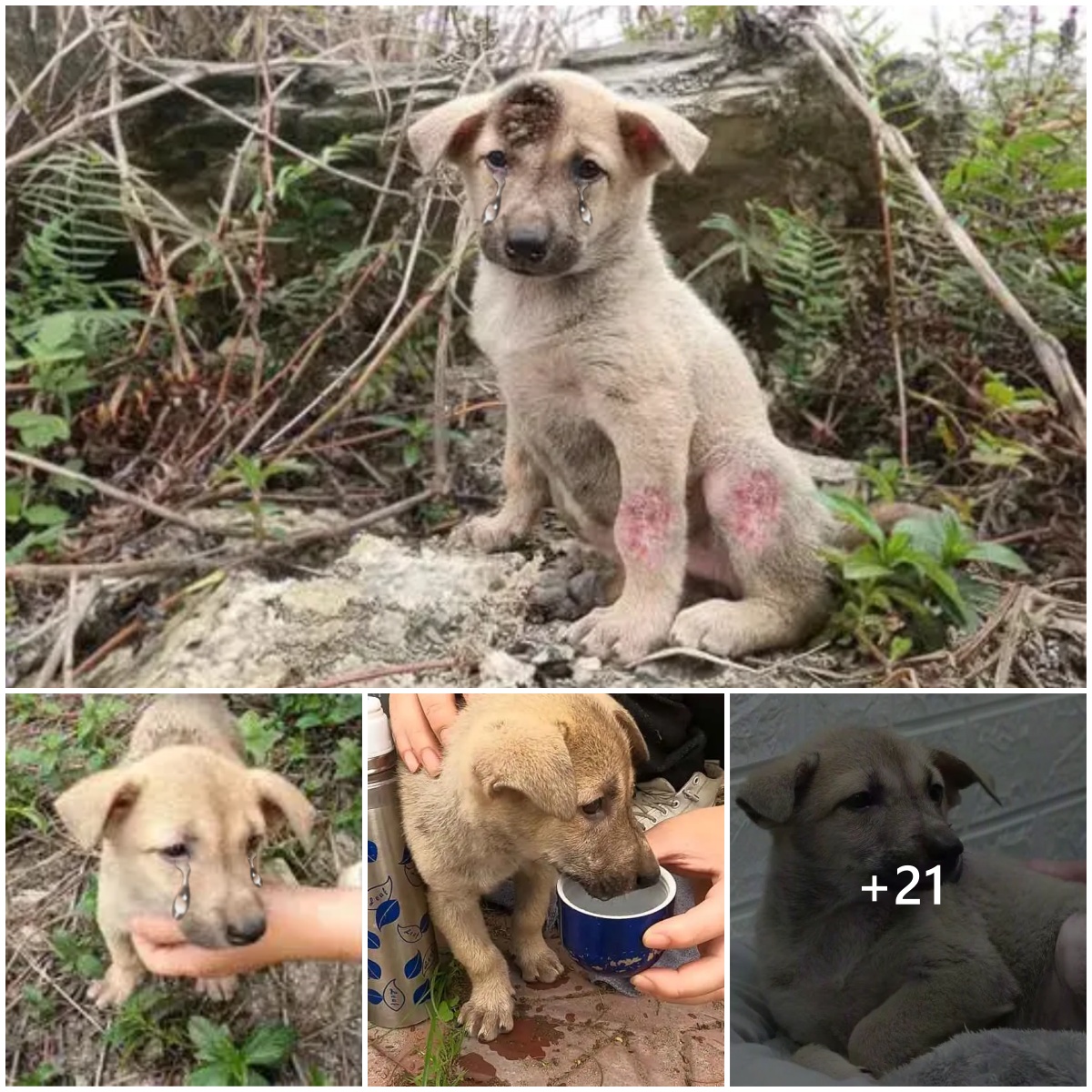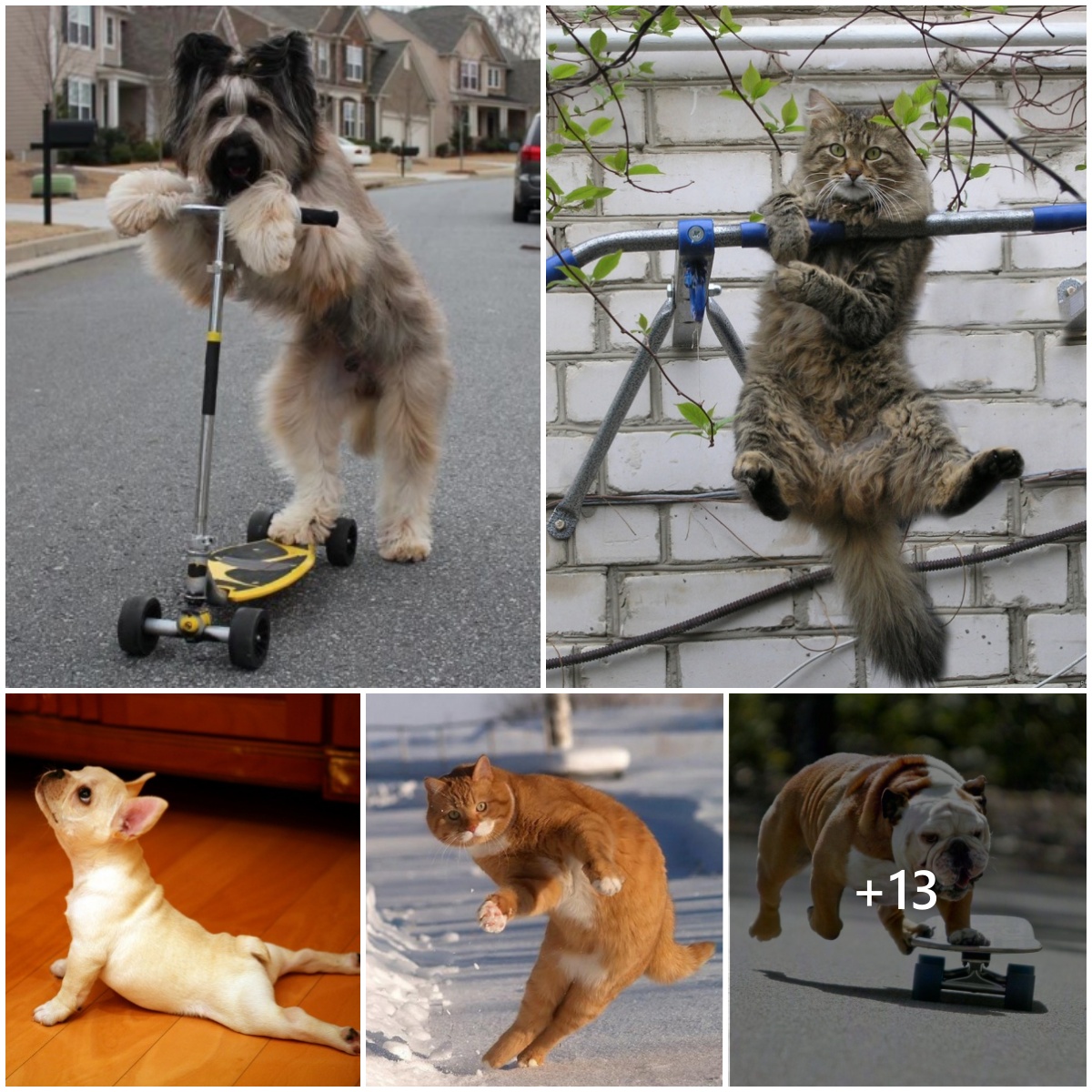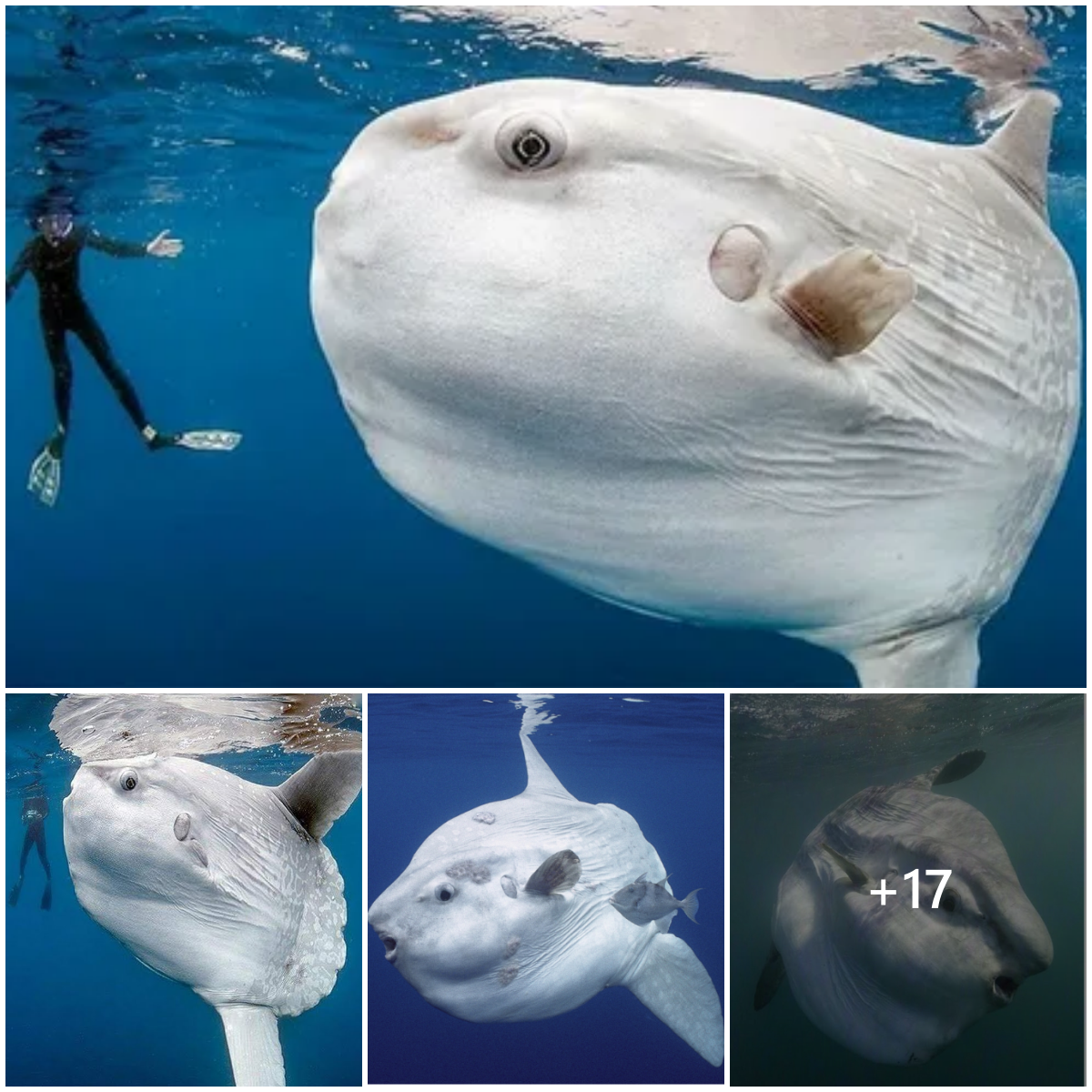The video of rescuing a crocodile from a frozen swamp has attracted more than 9.5 million views after going viral on Twitter. What especially confuses netizens is how can this reptile survive in freezing temperatures for such a long time?

Crocodiles are inherently cold-blooded animals, relying on sunlight to regulate their body temperature. It can keep body temperature within a certain limit even when the surrounding temperature is abnormal.
During times when there is no sunlight or when the temperature drops, this reptile digs large holes in the river, sometimes on the banks, for shelter.
Reptiles are capable of living in the coldest water environments of about 4 degrees Celsius. However, surviving in freezing water is a completely different story. After watching a video of a crocodile surviving in a frozen lake, netizens couldn’t help but be confused and surprised.
Social media user Tansu Yegan shared a video showing a man using a hammer to break through layers of ice to rescue a trapped crocodile.

The man in the video named George Howard did not completely free the adult crocodile from the ice swamp, but only tried to dig a little to create space for the crocodile to relax.
“It’s a great alligator survival technique,” said George Howard, manager of The Swamp park in southern North Carolina. They have the ability to survive in environments that are not their forte. This is clear evidence of this possibility.”
At The Swamp park, there are about 12 crocodiles hibernating under the ice. When buried in a thick layer of ice, this reptile does not die but only hibernates by slowing down its metabolism.
They lower their body temperature to survive in cold weather. Basically, crocodiles can slow down for a while but they still need to breathe.
To be able to perform this important process, they will cut a thin layer of ice on the surface and pull the tip upward.
“Crocodiles survive in frozen swamps by sticking their noses through the ice to breathe,” George Howard said. Reptiles stop metabolism and do not need to eat, their heart rate slows down, and their digestive system slows down. Otherwise, they just sit and wait for warm weather to return.
- Giai-cuu-ca-sau-ra-khoi-dam-lay-dong-bang





